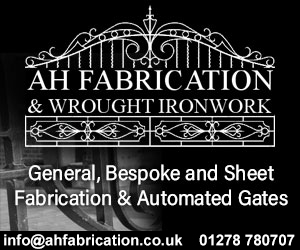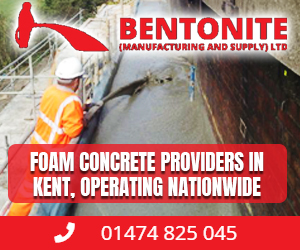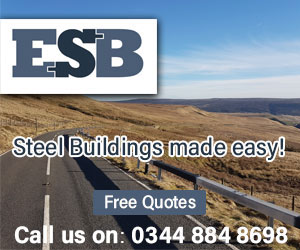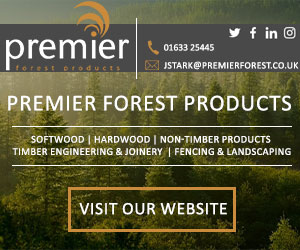Efco UK Ltd
Considerations for Choosing Concrete Formwork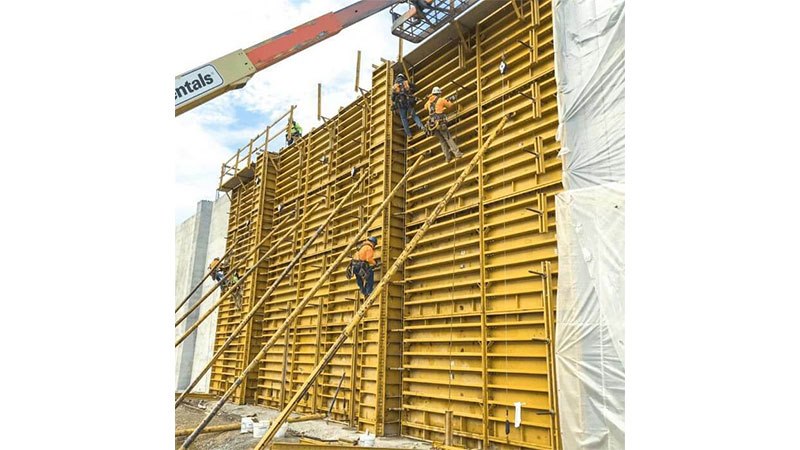
Choosing the right concrete formwork is essential for ensuring the stability, durability, and overall success of your concrete construction project.
Below are several key considerations and options when selecting concrete formwork:
COLUMNS
For highrise buildings, our column forming?systems can be customized to meet the needs for specific requirements. Our custom column and beam applications are highly efficient and increase productivity on apartment buildings, office complexes, highrise hotels and more.
Jump System
Using an EFCO Jump System minimizes labor to cycle vertical shafts. Forms can be cycled without the requirements of having a worker riding the platform system.
Self-Climbing
EFCO offers two systems which meet the increasing demand for independent solutions that can raise formwork and concrete pumps vertically without relying on the use of a crane for repetitious vertical lifts.
Self-Spanning
EFCO’s self-spanning PLATE GIRDER® system was developed with many of your forming needs in mind, including bridges, stadiums, marine work, and power plants. Our unique self-spanning characteristics allow you to pour aerial concrete without the need for expensive and time consuming shoring to the ground.
Box Culvert
The Box Culvert Traveler System requires very minimal labor to configure and cycle from setup to setup. Count on the Traveler Form to produce large and smooth surfaces every time. This system easily handles multiple barrel boxes and can be customized to meet the needs for specific requirements.
Cycling the inside box is easily handled and extremely efficient. Since it is all on wheels, you simply collapse it, lower it and roll it ahead, all in one assembly. With EFCO’s unique topside roof support system in place, the Box Culvert forms can be cycled every day with a stop set and pour cycle.
Heavy-Duty Bridge Overhang
For bridge deck overhang forming, there is a real opportunity for production efficiency. This opportunity equates to the reduction of man-hours due to challenging work conditions resulting in real savings. This new EFCO system can minimize the exposures from working high overhead, sometimes over water and traffic. Large projects require speed and efficiency to be profitable. With today’s lower margins, reducing labor costs through productivity gains is the single largest opportunity to control the overall project costs.
Below are several key considerations and options when selecting concrete formwork:
- Type of Structure:
- The design and specifications of the structure will influence the type of formwork required. Is it a beam, column, slab, or wall?
- Material of Formwork:
- Timber Formwork: Cost-effective and easy to manipulate; suitable for small-scale projects.
- Steel Formwork: Durable and reusable; provides smooth surfaces but is heavier and more expensive.
- Aluminum Formwork: Lightweight and modular; ideal for repetitive construction but can be more costly.
- Plastic/Composite Formwork: Lightweight and resistant to corrosion; useful for specific applications.
- Construction Methods:
- Traditional Formwork: Built on-site using timber and plywood, suitable for custom shapes.
- Pre-fabricated/Form-lined Systems: Faster and requires less labor; useful for mass production.
- Insulated Concrete Forms (ICFs): Provide insulation and formwork in one; suitable for energy-efficient buildings.
- Project Size and Complexity:
- Larger or more complex projects may require more durable and modular systems to facilitate efficient assembly and disassembly.
- Reusability:
- Consider how many times the formwork will be used. More durable materials might be more economical if reused frequently.
- Surface Finish:
- The desired finish of the concrete surface will dictate the formwork material and treatment options. For a smooth finish, high-quality formwork materials and surface treatments are necessary.
- Cost:
- Budget constraints play a significant role in selecting formwork. Balance initial costs with potential reusability and labor savings.
- Labor Availability:
- Assess the skill levels available in your workforce. Some formwork systems require specialized training and experience.
- Local Regulations and Standards:
- Ensure compliance with local building codes and regulations, which may dictate specific formwork practices.
- When choosing concrete formwork, it's important to analyze the specific requirements of your project, including he structural demands, budget, expected lifespan, reusability, and ease of assembly. Consulting with professionals who have experience with formwork can also provide valuable insights that align with best practices and safety standards in the field.
COLUMNS
For highrise buildings, our column forming?systems can be customized to meet the needs for specific requirements. Our custom column and beam applications are highly efficient and increase productivity on apartment buildings, office complexes, highrise hotels and more.
Jump System
Using an EFCO Jump System minimizes labor to cycle vertical shafts. Forms can be cycled without the requirements of having a worker riding the platform system.
Self-Climbing
EFCO offers two systems which meet the increasing demand for independent solutions that can raise formwork and concrete pumps vertically without relying on the use of a crane for repetitious vertical lifts.
Self-Spanning
EFCO’s self-spanning PLATE GIRDER® system was developed with many of your forming needs in mind, including bridges, stadiums, marine work, and power plants. Our unique self-spanning characteristics allow you to pour aerial concrete without the need for expensive and time consuming shoring to the ground.
Box Culvert
The Box Culvert Traveler System requires very minimal labor to configure and cycle from setup to setup. Count on the Traveler Form to produce large and smooth surfaces every time. This system easily handles multiple barrel boxes and can be customized to meet the needs for specific requirements.
Cycling the inside box is easily handled and extremely efficient. Since it is all on wheels, you simply collapse it, lower it and roll it ahead, all in one assembly. With EFCO’s unique topside roof support system in place, the Box Culvert forms can be cycled every day with a stop set and pour cycle.
Heavy-Duty Bridge Overhang
For bridge deck overhang forming, there is a real opportunity for production efficiency. This opportunity equates to the reduction of man-hours due to challenging work conditions resulting in real savings. This new EFCO system can minimize the exposures from working high overhead, sometimes over water and traffic. Large projects require speed and efficiency to be profitable. With today’s lower margins, reducing labor costs through productivity gains is the single largest opportunity to control the overall project costs.

Efco UK Ltd
22-28 Meadow Close
Ise Valley Industrial Estate
Wellingborough
NN8 4BH
Ise Valley Industrial Estate
Wellingborough
NN8 4BH
 UK
UK Ireland
Ireland Scotland
Scotland London
London



